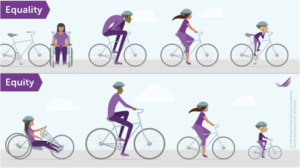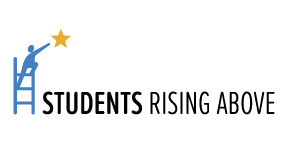SRA Welcomes Dipti Gorur Sirisinahal To Board of Directors; Creating Innovative, Diverse, Equitable, and Inclusive Work Cultures
 We had the opportunity to sit down with new SRA Board member, Dipti Gorur Sirisinahal, People Partner at Google. Dipti is responsible for setting the talent strategy and people priorities for Google’s Chrome Operating System Organization. Her passion revolves around creating work cultures that are innovative, diverse, equitable, and inclusive.
We had the opportunity to sit down with new SRA Board member, Dipti Gorur Sirisinahal, People Partner at Google. Dipti is responsible for setting the talent strategy and people priorities for Google’s Chrome Operating System Organization. Her passion revolves around creating work cultures that are innovative, diverse, equitable, and inclusive.
Thank you, Dipti, for joining our SRA Board of Directors! We are so grateful for your support and deep commitment to creating authentic, diverse, and inclusive work cultures for SRA students – our future leaders – and for all. Read on for the full Q&A, and follow our blog and social media channels to stay connected and up to date on all SRA news and events!
Please share a little about yourself? Where are you from? How did education shape your life?
I was born in Bangalore, India and grew up in Chennai, India, finishing my schooling there. After completing my Bachelor’s in India, I moved to the U.S. in 2008 to pursue my Master’s in Human Resources from the University of Illinois, Urbana Champaign. Education is what helped me figure out my passion for HR. I wasn’t sure what I really wanted to do when I chose to do my Bachelor’s, and was introduced to HR as a subject. It was only then that I realized one could have a career in it – better late than never!
Please share your college-to-career journey. What led you toward your career path in Human Resources?
During my Bachelor’s in Hotel Management, organizational behavior was a class I took and it simply blew my mind. Studying about what motivates people in a work setting, learning about how employee emotions and well-being play into innovation and organizational success, made me realize the importance of HR as a function in a company’s success. It was then that I decided I wanted to be part of creating authentic work cultures.
You have such a diverse portfolio of companies you’ve served. What have you learned from working in various industries?
My biggest learning is that fundamentally all humans have similar emotions: happiness, motivation, fear, self-doubt, etc., regardless of their background. At the same time, every individual’s background and life experiences shapes their world view. Companies that acknowledge and intentionally create a sense of psychological safety for every one of their employees are those that end up having best-in-class work cultures, which result in high-performing teams that ultimately make companies successful.
Please share about your experience as a woman of color in leadership?
Something that I tell myself everyday is to find ways to be the voice of those who are not in the room and to find ways to bring more of them into the room! There is much more work to be done to ensure that more women, more people of color, and more folks from underrepresented groups are part of leading organizations, teams, and communities.
What does equity and equitable opportunities mean to you?
As soon as you talk about equity, this image comes to mind. I feel like this really illustrates equity in a way that completely resonates with me.

Equitable opportunity to me is giving everyone the tools, including access to high quality teachers, curriculum instruction tools, career advice, mentorship and the emotional support they need based on their individual situation. Talent is everywhere, but opportunity is not; and SRA helps create more of those opportunities in my opinion.
Please share how you got involved with Students Rising Above – How did you hear about SRA? What interested you to learn more?
I was introduced to SRA through Kim Laughton, an existing board member of SRA and former colleague. When I started doing some research I chanced upon a TED Talk by a former SRA scholar, Kimberly Ramirez Gonzalez. Her energy and definition of success totally inspired me to jump right in with SRA. Do take a listen if you haven’t: Pretty Tough: Redefining Success.
What does Students Rising Above mean to you in terms of closing equity gaps?
SRA plays a critical role in ensuring that underrepresented students do not get left behind in the current education-to-workforce ecosystem. SRA focuses not just on financial assistance, but on supporting its students socially and emotionally, as well. SRA creates this wonderful avenue for students to build community and have their voice heard through channels like SRA’s #DearCommunity. Every student has an assigned advisor to help them succeed. With the pandemic, there has been a significant impact on college enrollments. This in turn, leads to larger disparities in graduation rates and ultimately lower workforce diversity. SRA continues to help students enroll, persist, graduate, and even thrive in the workplace. And guess what? We are all better for it!
What does education mean to you?
As J. Krishnamurthi, the educational philosopher stated, the purpose of education is to bring about freedom, love, “the flowering of goodness,” and the complete transformation of society.
That resonates with me. While education can be about gaining academic or technical knowledge, it’s not complete until we develop other aspects of humanity, community, and cultural awareness.
Please share why you joined the Students Rising Above Board of Directors?
One way to close the equity gap in education is for institutions like schools, colleges, and non-profits in the education sector to continue to infuse their DEI (diversity, equity, and inclusion) strategy into every aspect of their strategic plan. This includes how they hire, grow, promote, and most importantly serve the student community. Students Rising Above is fully aligned with that and I’m honored to be a small part of this amazing journey SRA is on.
What advice would you give to our SRA students and alumni who are entering the workforce during unprecedented times?
- Take good care of yourself and uplift those around you: The challenges you are facing as a new graduate entering the workforce are those that many people would have never experienced in their lifetime. We need to be there for each other.
- Look for places where you can be helpful: Unprecedented times leads to uncertainty. Look for opportunities to be helpful in the workforce. Your willingness, openness, and flexibility will go a long way! It might not be what you dreamed of, but it’s an opportunity none the less to have impact!
- Don’t be afraid to ask questions! You have a unique perspective and a fresh pair of eyes so use them. Your ideas and questions can provoke new ways of thinking, sparking creativity and innovation within the company.
